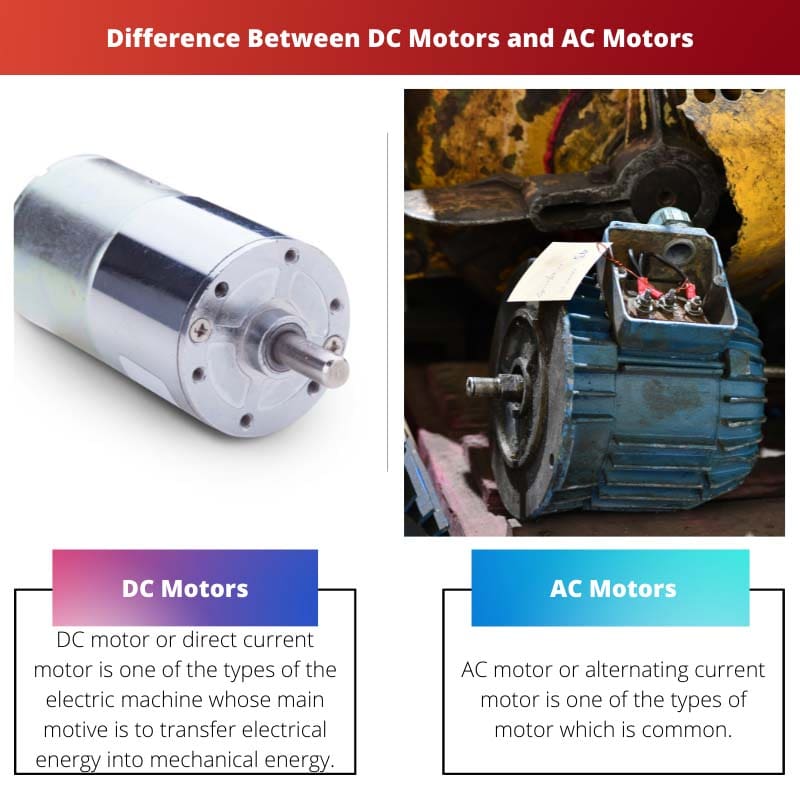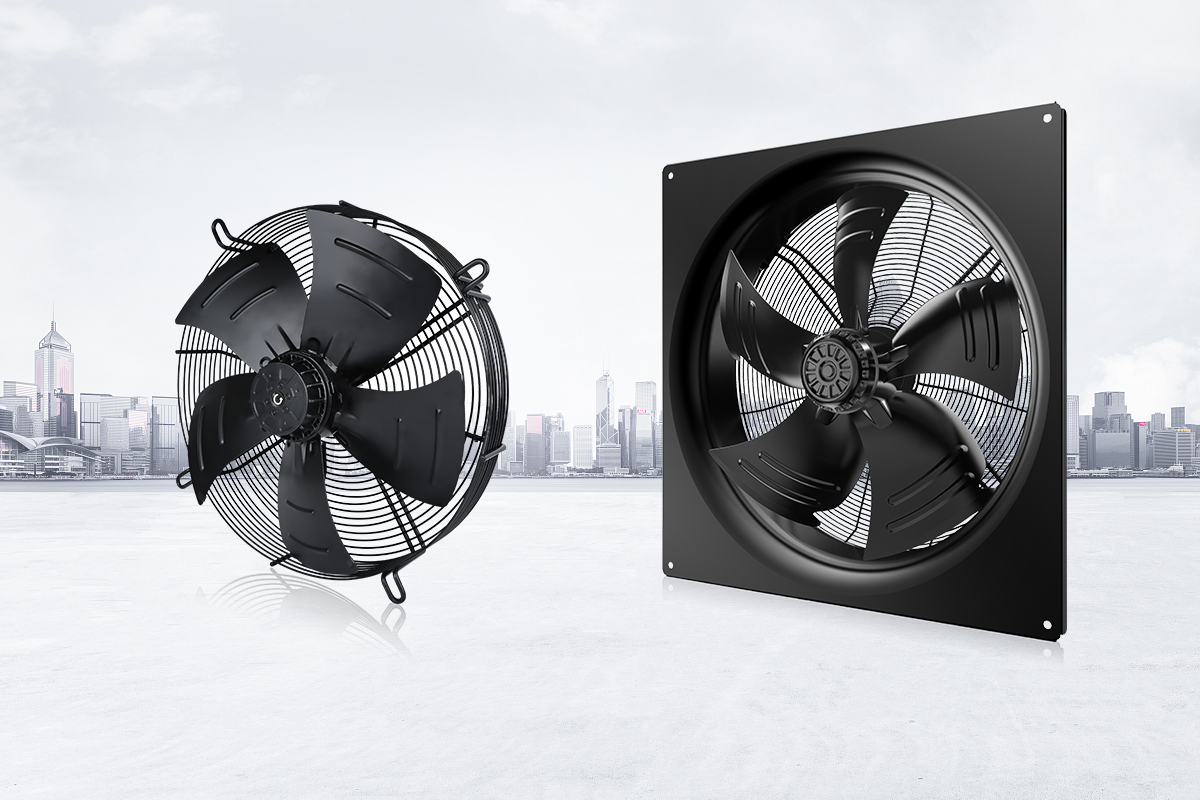Marvelous Tips About Do DC Or AC Fans Last Longer

The Great Fan Face-Off
So, you're in the market for a fan, or maybe you're just curious about the humming whirs that keep you cool. One question that often pops up is: "Do DC or AC fans last longer?" Its a valid concern! After all, nobody wants to replace their fan every other year. We're diving deep into the world of fan technology to see which type offers the best bang for your buck— or, more accurately, the most breezes for your buck.
1. A Quick Look at AC Fans
Think of AC fans as the old-school workhorses. They've been around for ages and are the standard in many homes. They plug directly into your wall socket and use alternating current (AC) to spin their blades. AC motors are generally simpler in design, which can translate to lower manufacturing costs. You'll often find them in cheaper models, ceiling fans, and those basic box fans that everyone seems to own.
Because they're less complex, repairing an AC fan can sometimes be easier (and cheaper). Finding replacement parts is often a breeze. However, that simplicity also means they're not always the most energy-efficient. They tend to draw more power compared to their DC counterparts, which can add up on your electricity bill over time. Think of them as gas-guzzling classic cars: reliable but not exactly eco-friendly.
Longevity-wise, AC fans are a mixed bag. A well-maintained AC fan can last for years, even decades. However, their simple design also means they can be prone to certain types of wear and tear. The constant switching of current can put stress on the motor's components, potentially leading to eventual failure. It really boils down to the quality of the components used in the first place.
To sum it up, AC fans are affordable, readily available, and can last a long time if properly cared for. However, they're generally less energy-efficient and may be more susceptible to certain types of wear and tear compared to DC fans.
2. Decoding the DC Fan Difference
Now, let's talk about DC fans. These are the newer kids on the block, utilizing direct current (DC) to power their motors. DC motors are typically more complex than AC motors, often incorporating electronic components to control the fan's speed and operation. This complexity comes with some advantages, though.
One of the biggest selling points of DC fans is their energy efficiency. They use significantly less power than AC fans, which can lead to substantial savings on your electricity bill over the lifespan of the fan. This efficiency comes from the DC motor's ability to convert power more effectively and precisely control the fan's speed without wasting energy.
Another advantage of DC fans is their quieter operation. Because of the smoother and more controlled rotation of the DC motor, they produce less noise compared to AC fans. This makes them ideal for bedrooms, offices, or any space where you want to minimize distractions. Imagine a gentle breeze instead of a loud, whirring sound— that's the DC fan difference.
Regarding longevity, DC fans tend to have a longer lifespan than AC fans. While their electronic components could theoretically be a point of failure, advancements in technology and manufacturing have made them quite reliable. The smoother operation and reduced stress on the motor's components also contribute to their increased lifespan. This longevity, coupled with energy savings, can make them a worthwhile investment in the long run.

Ac Vs Dc Motor Comparison Leta Tuesday
So, Do DC Fans Really Outlast AC Fans? The Truth Unveiled
Okay, let's get down to brass tacks: do DC fans really last longer than AC fans? The answer, as with most things in life, isn't a simple yes or no. It's more of a "it depends," but with a slight lean towards DC fans.
3. The Longevity Factor
The longevity of any fan, AC or DC, hinges heavily on the quality of the components used in its construction. A cheap, poorly made DC fan might not last as long as a well-built, high-quality AC fan. So, don't assume that just because it's DC, it's automatically going to last forever.
However, all things being equal, DC fans tend to have the edge. The reasons for this are twofold: smoother operation and reduced stress. DC motors operate with a more consistent flow of power, which puts less strain on the motor's internal components. This translates to less wear and tear over time, potentially extending the fan's lifespan.
Think of it like this: Imagine driving a car. If you constantly accelerate and brake harshly, the engine and brakes will wear out faster than if you drive smoothly and consistently. The same principle applies to fan motors. The smoother the operation, the longer the lifespan.
Ultimately, the best way to ensure a long-lasting fan is to choose a reputable brand, read reviews, and consider the fan's build quality. Don't just focus on whether it's AC or DC; look at the overall construction and reputation of the manufacturer. A little research can go a long way in ensuring you get a fan that will keep you cool for years to come.
4. Beyond Motor Type
It's not just about AC versus DC. Several other factors play a significant role in determining how long your fan will last. Ignoring these factors is like buying a fancy sports car and then never changing the oil— it's just not going to end well.
First and foremost, usage patterns matter. If you run your fan 24/7, 365 days a year, it's going to wear out faster than if you only use it occasionally. Think of it like any other appliance; the more you use it, the sooner it will eventually need replacing.
Maintenance is another crucial factor. Regularly cleaning your fan blades and motor can prevent dust and debris from building up, which can cause the motor to overheat and fail prematurely. A little dusting every now and then can add years to your fan's lifespan. Plus, who wants to be blasted with dust when the fan turns on?
Finally, the environment in which the fan operates can also impact its lifespan. If you live in a humid or dusty environment, the fan is going to be exposed to more moisture and particles, which can accelerate wear and tear. In such cases, consider choosing a fan with sealed bearings or a motor designed to withstand harsh conditions. It's like choosing the right tires for your car depending on the road conditions; it makes a big difference.

Making the Choice
Alright, we've covered a lot of ground. But how do you actually choose the right fan for your needs? It's not just about AC versus DC; it's about finding the fan that best fits your budget, lifestyle, and cooling needs.
5. Budget Considerations
Let's face it: budget is a major factor for most people. AC fans tend to be more affordable upfront, making them a tempting option if you're on a tight budget. However, remember that the lower upfront cost might be offset by higher energy consumption over the long run. It's like buying a cheap car that gets terrible gas mileage; you might save money initially, but you'll end up paying more in the long run.
DC fans, on the other hand, typically have a higher upfront cost. However, their energy efficiency can lead to significant savings on your electricity bill, potentially making them the more economical choice in the long run. It's like investing in a solar panel system; it's expensive upfront, but you'll save money on electricity for years to come. Consider how long you plan to use the fan and factor in potential energy savings when making your decision.
Also, don't forget to factor in the potential cost of repairs. While DC fans tend to be more reliable, repairing them can sometimes be more expensive due to their more complex components. Weigh the potential benefits of lower energy consumption against the potential costs of repairs when making your decision. It's a balancing act, but with a little careful consideration, you can find the sweet spot between cost and performance.
Beyond the motor, compare the features of each fan. Does one have more speed settings? Is one quieter than the other? Does one offer smart home integration, if that's important to you? Considering these extra features can help you justify a slightly higher price point if they truly enhance your experience.
6. Lifestyle and Usage
Your lifestyle and how you plan to use the fan should also play a role in your decision. If you need a fan for a bedroom or office, where noise is a concern, a DC fan is probably the better choice due to its quieter operation. If you're looking for a fan for a garage or workshop, where noise is less of an issue, an AC fan might suffice.
Consider how often you plan to use the fan. If you only need it occasionally, an AC fan might be perfectly adequate. But if you plan to run the fan constantly, especially during hot summer months, a DC fan's energy efficiency will make a significant difference in your electricity bill.
Think about the size of the room you need to cool. A smaller room might only require a small, inexpensive fan, while a larger room might benefit from a more powerful, energy-efficient DC fan. Choose a fan that's appropriately sized for the space to maximize its effectiveness and efficiency.
Do you want smart features, like app control or voice assistant integration? Some DC fans offer these features, allowing you to control the fan from your smartphone or with voice commands. If you're a tech enthusiast, these features might be worth the extra cost.

Frequently Asked Questions (FAQs)
7. Q
A: Yes, generally speaking, DC fans are significantly more energy-efficient than AC fans. The exact amount of energy saved can vary depending on the specific models being compared, but DC fans can often use up to 70% less energy than their AC counterparts. Over time, those savings can really add up!8. Q
A: It can be. DC fans have more complex electronic components, which might require specialized knowledge or tools to repair. However, due to their increased reliability, they often require less frequent repairs in the first place. If you're not comfortable repairing electronics yourself, you might need to hire a professional to repair a DC fan, which could be more expensive than repairing a simpler AC fan.9. Q
A: For AC fans, brands like Lasko, Honeywell, and Vornado are generally well-regarded. For DC fans, consider brands like Big Ass Fans (yes, that's their actual name!), Haiku, and some models from Hunter and Casablanca. Always read reviews and compare features before making a purchase.

